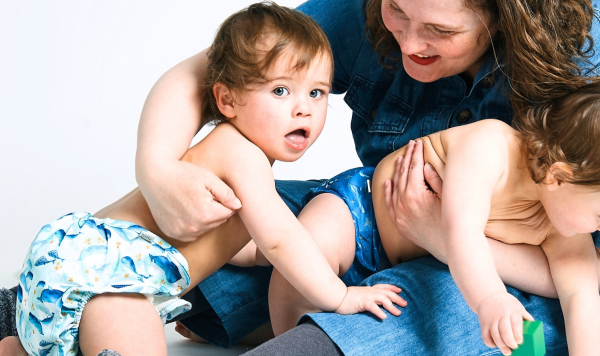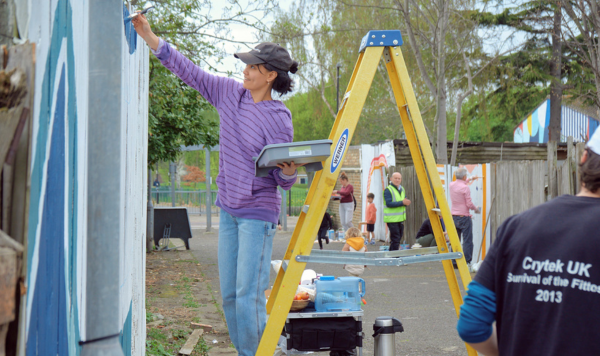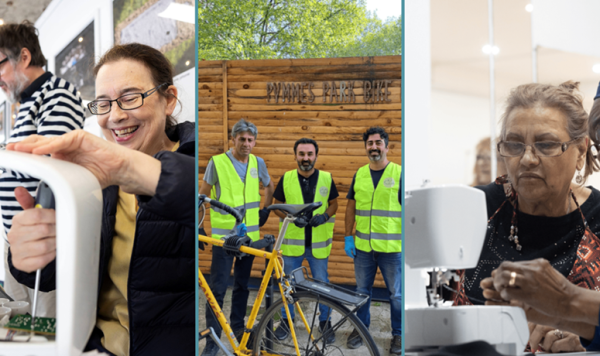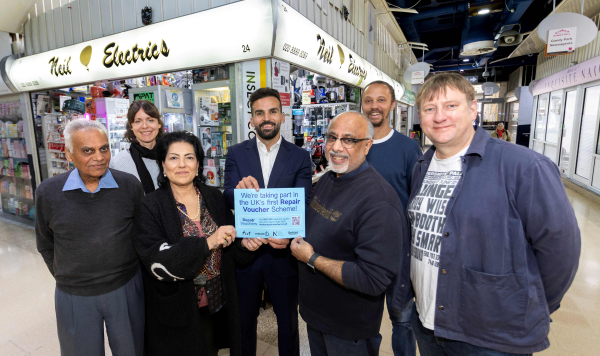As tackling the Climate Emergency becomes ever more urgent, so does the need for the UK economy to become circular. Crucial in that pursuit, is the elimination of unnecessary waste. In its new plan, Preserving Resources, Driving Change, North London Waste Authority (NLWA) sets out how.
Actions to 2025 include significant financial support for community groups that are reducing waste at the grassroots; innovating to recycle more difficult items such as carpets; influencing business to design out waste; and campaigning for the Government to ban more avoidable and unecological waste.
Serving two million residents, NLWA is the public body responsible for dealing with household recycling and waste across the seven north London boroughs of Barnet, Camden, Enfield, Hackney, Haringey, Islington, and Waltham Forest. To inform the plan’s priorities, in 2022, NLWA met with representatives of 35 organisations including environmental charities and NGOs.
Key highlights of Preserving Resources, Driving Change include:
- Supporting and funding more grassroots waste prevention initiatives; NLWA’s North London Community Fund will more than double in 2023-4 to £250,000.
- Reviewing future options for NLWA’s network of household Reuse and Recycling Centres (RRCs). The ambition is to transform RRCs into hubs for circularity, where people can find materials for reuse. This would build on NLWA’s current trial DIY reuse scheme, launched last October at its South Access Road in Waltham Forest, which allows residents to drop off leftover materials for others to take away for free.
- Researching effective options to support residents who want to switch to using reusable period products. This would be in addition to NLWA’s reusable nappy voucher scheme. As part of the plan, NLWA will also consider increasing the value of the reusable nappy voucher, currently worth £54.15 as well as exploring ways to increase the uptake of the voucher, for instance, at daycare and nursery centres.
- Finding ways to recycle more difficult-to-recycle items including carpets and hard plastics such as toys and crates. This follows NLWA’s success in recycling mattresses and expanded polystyrene.
- Supporting trials in the boroughs such as food waste recycling services for residents living in flats above shops. Islington Council, in partnership with NLWA, is currently running such a trial along the Holloway Road. In just one month of the trial, over 500 kilos of food scraps were collected.
- Working with north London primary schools to help them develop waste prevention and recycling education and embed it into their curriculums.
- Opening a brand new, architect-designed education centre at Edmonton EcoPark in Enfield for schools, local interest groups, and residents; the goal is for the centre to be a beacon for waste prevention and circular economy education through talks, events, and workshops. It will also have interactive displays that demonstrate the problems caused by over-consumption and the alternatives, including the reuse of resources.
Working closely with its seven constituent boroughs, NLWA also aims to further influence debate and policy at both a local and national levels – such as its campaign for a ban on many more single-use plastics and for disposable coffee cups to have a 50p charge.
Cllr Clyde Loakes, the chair of NLWA said: “By reusing, repairing, and recycling on a greater scale throughout north London, we can not only reduce greenhouse gas emissions and prevent the loss of precious resources but also the major costs associated with the disposal of short-lived, unecological products
“NLWA’s new plan will put communities and people at the very heart of the circular economy and waste prevention, giving them more funding, more services, and more hope. Our work to influence business and the Government will also help create much-needed changes across the UK and beyond.
“As a country, we need to reimagine waste. With Government incentives in place, the UK could build thriving reuse and repair industries. Encouraging investment in the UK manufacturing of products made with recycled content would also supercharge the transition to a circular economy, bringing scores of green jobs and industries.”







